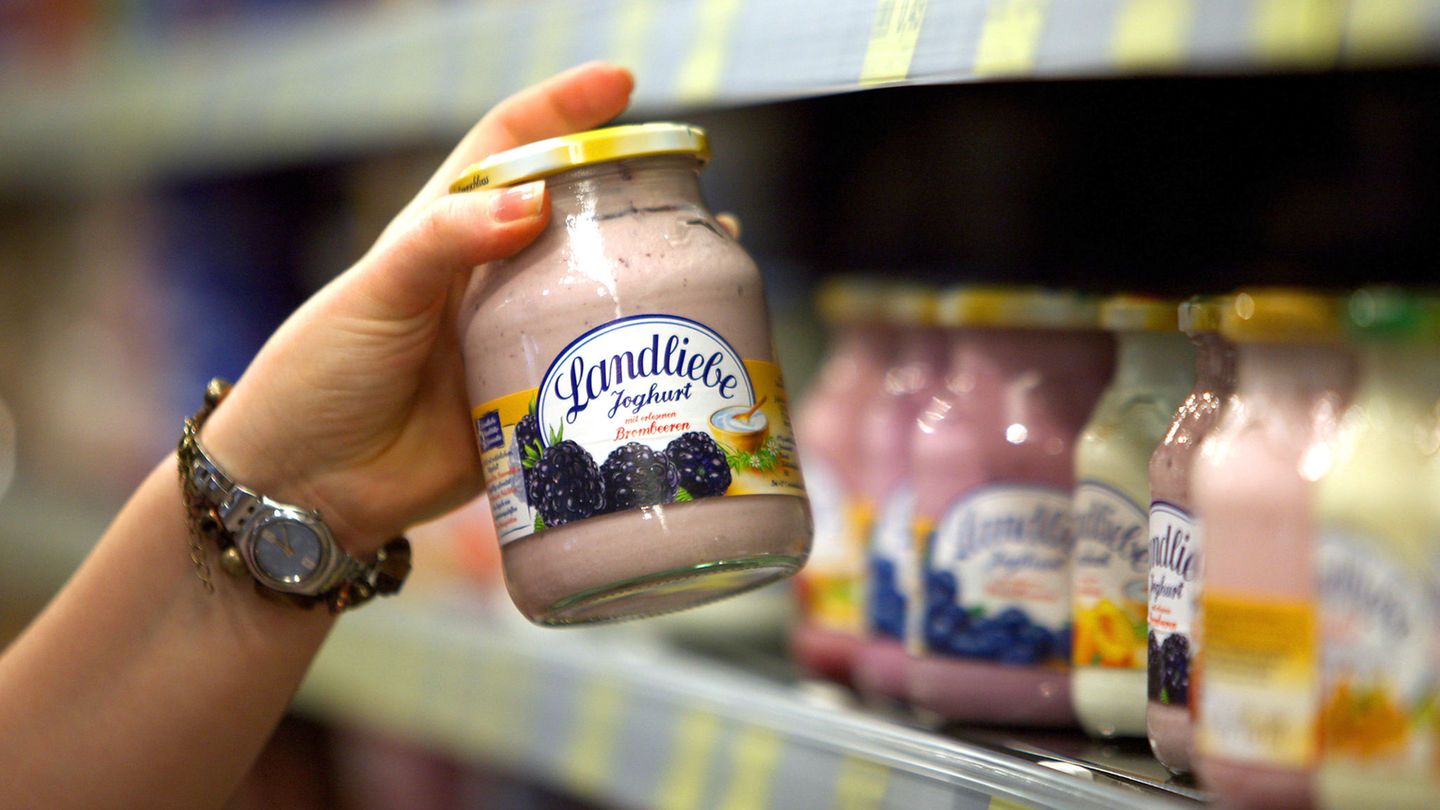Shortly after the takeover by Müllermilch, the Landliebe factory in Heilbronn had to close. The company said the location was not profitable. But NGG unionist Frank Meckes suspects other reasons.
This article is adapted from the business magazine Capital and is available here for ten days. Afterwards it will only be available to read at again. Capital belongs like that star to RTL Germany.
Mr. Meckes, Müllermilch only took over the Landliebe factory in Heilbronn in 2023. It is now scheduled to close by mid-2026 at the latest. What is the mood in the workforce?
Shitty, honestly, I can’t think of any other word. Of course also disappointed, frustrated, angry, angry. The complete range. I can understand that very well. Many employees have had to witness the decline of the former traditional company Südmilch over the years. Some of our colleagues have been working down there for 20, 30 years or longer. Many had reached a point at some point where they just wanted to get away from FrieslandCampina, which had taken over the business. With Müllermilch came a company that is successful on the market. This initially impressed the staff. And now, of course, this is a huge catastrophe.
Some employees say Mueller planned the closure from the start.
Yes, some say it was clear from the start, they didn’t have much hope. The others say that they are totally disappointed because they thought things were looking up and innovation and recovery were coming. It is a slap in the face to the employees who have been serving this company for many years, even decades.
The official reason is that the plant is no longer profitable. Is that correct?
The auditors commissioned by the works council will now analyze this. Of course we want to know that. And that’s what the people who work down there want to know. So far we have a one-sided announcement regarding profitability and investment backlog. We have to check that for ourselves. That’s why the works council decided to bring in experts here.
It’s not just Müllermilch that says it’s unprofitable. The previous owner FrieslandCampina already admitted that?
Yes, you’re not wrong. But this is the typical egg or chicken debate: which came first? A profitable business that then simply went down the drain due to a missing or incorrect strategy? Or actually a change in consumer behavior to which the company reacted too late or not at all?
Things seem to have gone wrong. Which?
Over the years, FrieslandCampina has obviously made serious mistakes at its Heilbronn and Cologne locations in terms of profitability, margin policy and perhaps also a wrong strategy towards retail chains. FrieslandCampina not only had its own brands such as Landliebe, but also produced private labels for all major retail chains such as Lidl, Edeka and Aldi. If at some point the ratio changes and, I would say, the majority only sells these white products, then the economic calculation will be overturned. Now I am not a FrieslandCampina controller or a Müller controller. But I think I can still put together so much on paper that I can at least say: I have to make money, and if I don’t do that, then I have to pursue a different brand strategy. But now, like Müller, to act as if After nine months of having this company entered in the commercial register, you come to the idea that the business is no longer profitable at all. I think that’s an impudence.
This is precisely why some people ask themselves whether it was Müller’s plan from the start to get rid of the unwanted competition and secure the Landliebe brand.
I assume that companies that are prepared to pay a lot of money are not so naïve about a takeover and think about the structure beforehand. The impression that the employees have also corresponds to our impression as a union. People aren’t stupid. At company meetings, the workforce repeatedly asked questions about the product portfolio, utilization and also questions about the future. That’s why these voices are now saying that this was Mr. Müller’s plan from the start. And that it was an opportunity for him to secure the trademark rights, push a competitor out of the market and expand market dominance.
According to the Federal Cartel Office, the Müller Group’s market share in the areas of rice pudding, fresh mixed milk drinks and basic milk drinks is already over 60 percent. That’s why the authorities took a close look at the takeover of the Landliebe locations.
Yes, I still blame our antitrust authorities. I have the feeling that we are losing sight of the big picture, i.e. what a company like this can possibly achieve in this large-scale portfolio story. You can’t blame the authorities for checking the oops oops. They’ve already taken their time. But the group’s market position is now enormous.
What alternative would there have been to selling to the Müller Group?
I believe that you can neither save such a location and such products overnight nor drive it to the wall. A big issue here is innovation, but also producing products that are not in line with the market, i.e. relying on incorrect items that may be very complicated and complex to produce and also incur a lot of costs, but do not provide the slightest return on what I need as a company.
So the Landliebe production should have been turned inside out and used a completely new strategy?
We all do that. Even as private individuals. You don’t buy anything blindly, do you? I don’t expect companies to do anything other than what we as average consumers would do.
What role do the AfD contacts of company founder Theo Müller play in the closure debate?
I actually have to listen to the staff. For me, what Mr. Müller does privately is his business. I just wonder why he maintains the contacts. It should be about creating sustainable jobs and innovative strength. So if it’s about an alternative, to use this party’s one word, then an alternative to plant closure would be investing in innovation, future viability and sustainable job security.
What’s next for the Landliebe-Werk and the employees – don’t you want to negotiate a social plan?
A social plan will be difficult because we have experience with what Müller did in Cologne when closing this location. The group claimed that it was the new founder of Landliebe with a new entry in the commercial register. Accordingly, he refers to the provisions of the works constitution law, according to which new names or new companies do not have to make a mandatory social plan for the first four years. We are currently examining this and will of course see how we can counteract it. If we see that we can do something legally, then we will do it.
Source: Stern




